Blooms Taxonomy Printable
Blooms Taxonomy Printable - The graph demonstrates the six aspects of learning,. Web bloom’s taxonomy of educational objectives. Means of expressing qualitatively different kinds of thinking. Web to use in a new situation. Web revised bloom's taxonomy chart the cognitive process dimension action verbs for learning goals action verbs for learning goals action verbs for learning goals. Solving problems by applying acquired knowl‐ edge, facts, techniques and rules in a different way. Web comprehensive list of bloom's taxonomy verbs for use in ela, math, science, and social studies. These questions are not bad, but using. Sample questions as teachers we tend to ask questions in the knowledge catagory 80% to 90% of the time. The skills at the top of the. This article will help you learn: Sample questions as teachers we tend to ask questions in the knowledge catagory 80% to 90% of the time. The graph demonstrates the six aspects of learning,. This table of verbs lists cognitive processes that fit into bloom’s six categories and help identify the cognitive complexity or the order of thinking. Web to use. Action verbs for creating learning outcomes (bloom’s revised taxonomy) level 1. Means of expressing qualitatively different kinds of thinking. Web revised bloom’s taxonomy model (responsive version) revised bloom’s taxonomy model (flash version) download the revised bloom’s taxonomy (pdf) recommended. Exhibit memory of previously learned material by recalling facts, organizing, terms, basic concepts, and answers. Students can use this learning tool. Web comprehensive list of bloom's taxonomy verbs for use in ela, math, science, and social studies. Benjamin bloom and colleagues (1956) created the original taxonomy of the cognitive. Means of expressing qualitatively different kinds of thinking. Web to use in a new situation. Solving problems by applying acquired knowl‐ edge, facts, techniques and rules in a different way. Web revised bloom’s taxonomy model (responsive version) revised bloom’s taxonomy model (flash version) download the revised bloom’s taxonomy (pdf) recommended. Solving problems by applying acquired knowl‐ edge, facts, techniques and rules in a different way. Web a resource for educators or institutions utilizing bloom’s taxonomy to structure the development or modification of curriculum and/or courses. Benjamin bloom and colleagues (1956). Web benjamin bloom created the taxonomy of educational objectives in 1956 as a means of expressing qualitatively different kinds of thinking. Bloom's taxonomy has since been. Means of expressing qualitatively different kinds of thinking. Web comprehensive list of bloom's taxonomy verbs for use in ela, math, science, and social studies. This table of verbs lists cognitive processes that fit into. Students can use this learning tool to develop questioning strategies for each. Web to avoid that, clarify your instructional goals using bloom’s taxonomy. Means of expressing qualitatively different kinds of thinking. Web comprehensive list of bloom's taxonomy verbs for use in ela, math, science, and social studies. The graph demonstrates the six aspects of learning,. Web comprehensive list of bloom's taxonomy verbs for use in ela, math, science, and social studies. Means of expressing qualitatively different kinds of thinking. Objectives state what we want our students to learn and be able to do. Solving problems by applying acquired knowl‐ edge, facts, techniques and rules in a different way. Web benjamin bloom created the taxonomy of. Web revised bloom's taxonomy chart the cognitive process dimension action verbs for learning goals action verbs for learning goals action verbs for learning goals. Benjamin bloom and colleagues (1956) created the original taxonomy of the cognitive. A taxonomy for learning, teaching, and assessing. Means of expressing qualitatively different kinds of thinking. Objectives state what we want our students to learn. Means of expressing qualitatively different kinds of thinking. This table of verbs lists cognitive processes that fit into bloom’s six categories and help identify the cognitive complexity or the order of thinking. A taxonomy for learning, teaching, and assessing. Benjamin bloom and colleagues (1956) created the original taxonomy of the cognitive. Web the revised taxonomy has altered categories and now. Exhibit memory of previously learned material by recalling facts, organizing, terms, basic concepts, and answers. Objectives state what we want our students to learn and be able to do. Web benjamin bloom created a taxonomy of measurable verbs to help us describe and classify observable knowledge, skills, attitudes, behaviors and abilities. This table of verbs lists cognitive processes that fit. Objectives state what we want our students to learn and be able to do. Benjamin bloom and colleagues (1956) created the original taxonomy of the cognitive. Solving problems by applying acquired knowl‐ edge, facts, techniques and rules in a different way. These questions are not bad, but using. A taxonomy for learning, teaching, and assessing. Exhibit memory of previously learned material by recalling facts, organizing, terms, basic concepts, and answers. Web revised bloom's taxonomy chart the cognitive process dimension action verbs for learning goals action verbs for learning goals action verbs for learning goals. Web revised bloom’s taxonomy model (responsive version) revised bloom’s taxonomy model (flash version) download the revised bloom’s taxonomy (pdf) recommended. A statement of an objective contains a noun. Web to avoid that, clarify your instructional goals using bloom’s taxonomy. The graph demonstrates the six aspects of learning,. Web benjamin bloom created the taxonomy of educational objectives in 1956 as a means of expressing qualitatively different kinds of thinking. Means of expressing qualitatively different kinds of thinking. Web bloom’s taxonomy of educational objectives. Web to use in a new situation. Web a resource for educators or institutions utilizing bloom’s taxonomy to structure the development or modification of curriculum and/or courses.
FREE Blooms Taxonomy printable flipchart not an iLesson but very
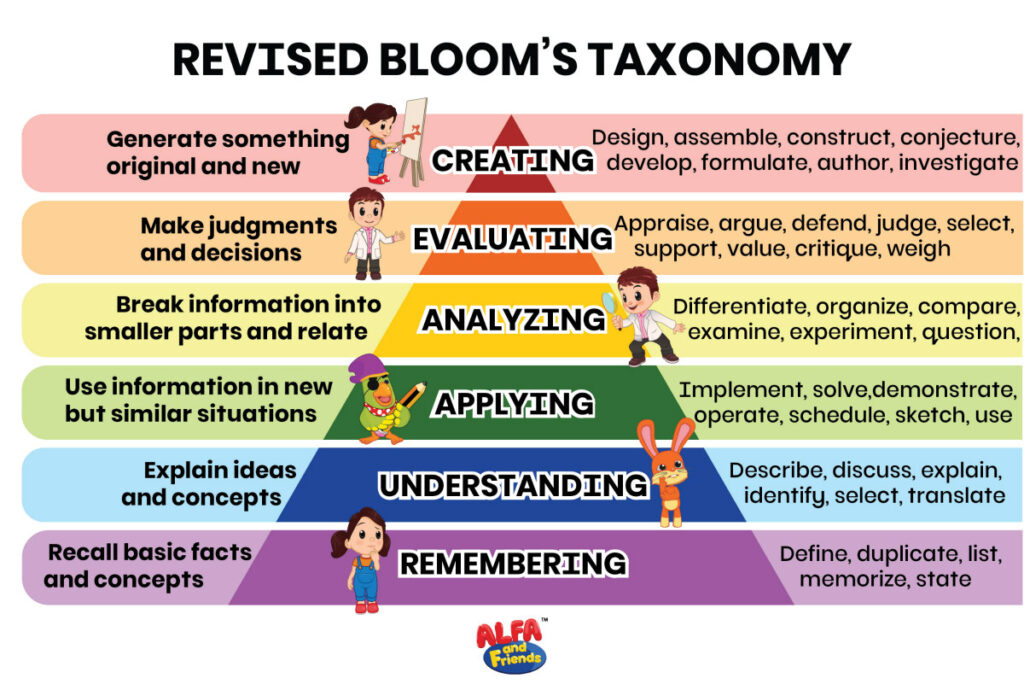
Using Bloom’s Taxonomy to Guide Interactions in the Classroom ALFA

Bloom's Taxonomy Education Table

Bloom's Taxonomy—How to Make Your Studying Perfect?
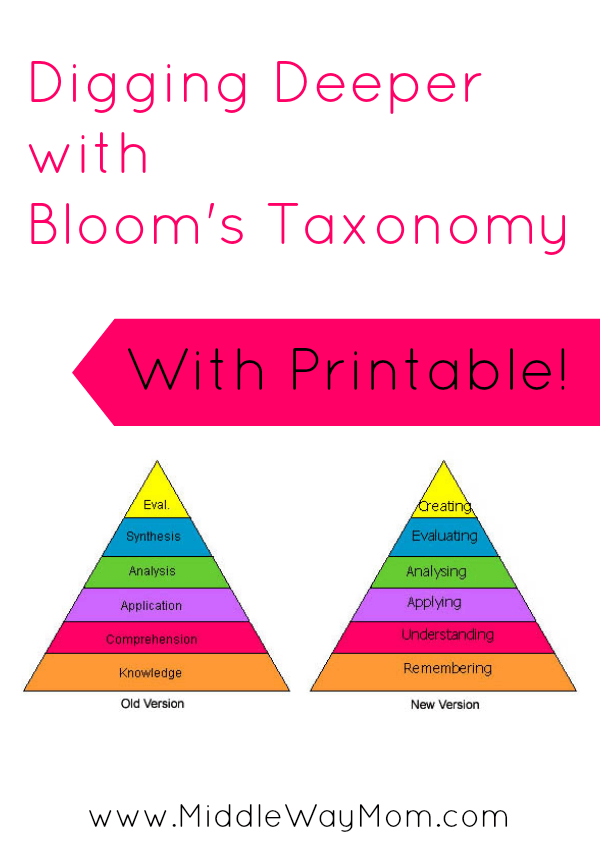
Digging Deeper with Bloom’s Taxonomy With Printable!
:max_bytes(150000):strip_icc()/Blooms-Graphic-1024x757-00772b45d3974746afa6aa8a34db64e6.jpg)
Using Bloom's Taxonomy for Effective Learning

Bloom's Taxonomy Verbs Free Classroom Chart
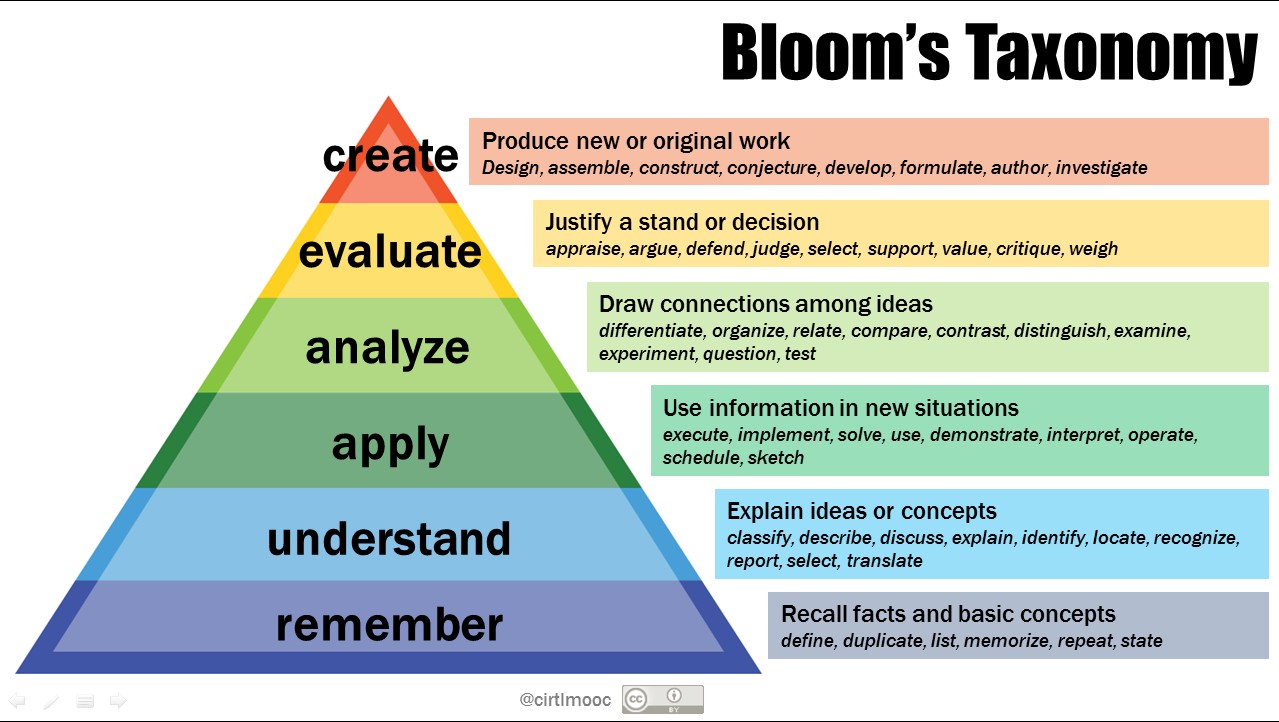
Bloom’s Taxonomy Center for Teaching Vanderbilt University
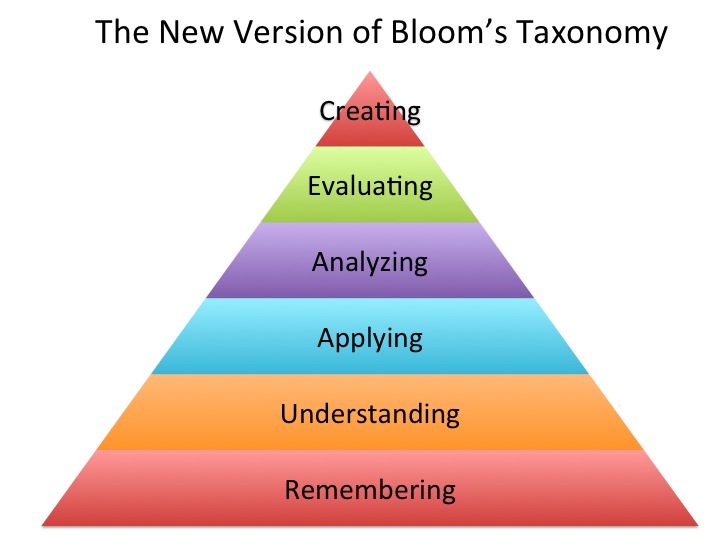
A Guide to Bloom’s Taxonomy The Innovative Instructor
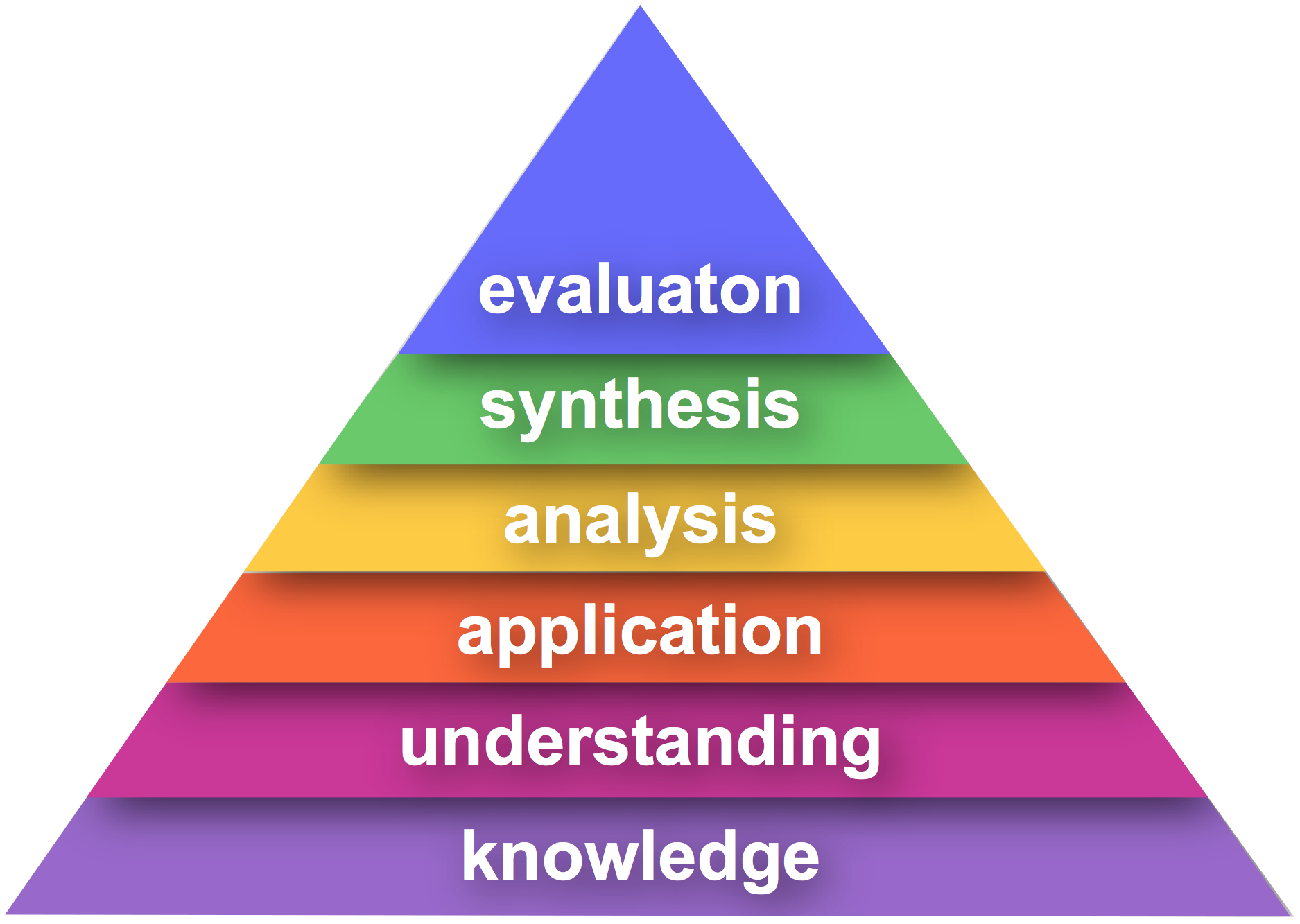
Bloom's Taxonomy Levels of Learning The Complete Post
Web Benjamin Bloom Created A Taxonomy Of Measurable Verbs To Help Us Describe And Classify Observable Knowledge, Skills, Attitudes, Behaviors And Abilities.
The Skills At The Top Of The.
This Table Of Verbs Lists Cognitive Processes That Fit Into Bloom’s Six Categories And Help Identify The Cognitive Complexity Or The Order Of Thinking.
Web Bloom’s Taxonomy Is A Hierarchical Model That Outlines Six Categories Of Learning And Application Skills That Progress From Less To More Complex.
Related Post: